ONE – Health, Environment, Society – Conference 2022
21 – 24 June 2022
Hybrid: Brussels, Belgium & online
Website: https://bit.ly/2N6MCga
ONE – Health, Environment, Society – Conference 2022
21 – 24 June 2022
Hybrid: Brussels, Belgium & online
Website: https://bit.ly/2N6MCga
Research grant evaluation by Initiative for Science in Europe (ISE)
18 March 2021, 14:00 – 15:30 CET
Online
Website: https://bit.ly/3qm5zKh
Research assessment practices by Initiative for Science in Europe (ISE)
4 March 2021, 14:00 – 15:30 CET
Online
Website : https://bit.ly/3rThJdR
18th Hellenic Symposium on Medicinal Chemistry
25 – 27 February 2021
Online
Website: https://bit.ly/3pnQZjQ
5th EuChemS Conference on Green and Sustainable Chemistry (5th EuGSC)
26 – 29 September 2021
To be decided: online or Thessaloniki, Greece
Website: https://bit.ly/2N7Ny3R
9th European Variety in University Chemistry Education Conference
7 – 9 July 2021
Hybrid: Ljubljana, Slovenia & online
Website: https://bit.ly/3qshEgB
1st European Sample Preparation Conference – EuSamplePrep Conference
11 – 12 March 2021
Online
Website: https://bit.ly/3ddUpDv
3rd Sustainable Chemistry Lecture Series – SCLS
2 March 2021
Online
Website: https://bit.ly/3alzFrx
The International Sustainable Chemistry Collaborative Centre (ISC3) Innovation Challenge 2020/2021 addresses innovators from around the world which are active in developing sustainable chemistry solutions linked to renewable energies.
Deadline: 1 April 2021, 12:00 am CEST
Website: https://bit.ly/373FgAG
RawMaterials Accelerator introduces start-up teams to potential customers from the EIT RawMaterials partner networks willing to adopt innovations. The programme connects local and national ecosystems to the pan-European network of a pilot and test infrastructure facilities, as well as potential customers.
Deadline (phase 1): 1 March 2021
Website: https://bit.ly/3qhofe1
The European Association of National Metrology Institutes (EURAMET) announced the launch of the 2021 Call for Needs for several topic areas, within the potential European Partnership on Metrology.
Deadline: 22 February 2021, 23:59 CET
Website: https://bit.ly/3jBEtvT
A number of consultations put forward by the European Food Safety Authority (EFSA) are currently open.
You can take a look at all here.
EuChemS is an official accredited stakeholder of the European Food Safety Authority (EFSA).
A number of consultations and roadmaps put forward by the European Commission are currently open:
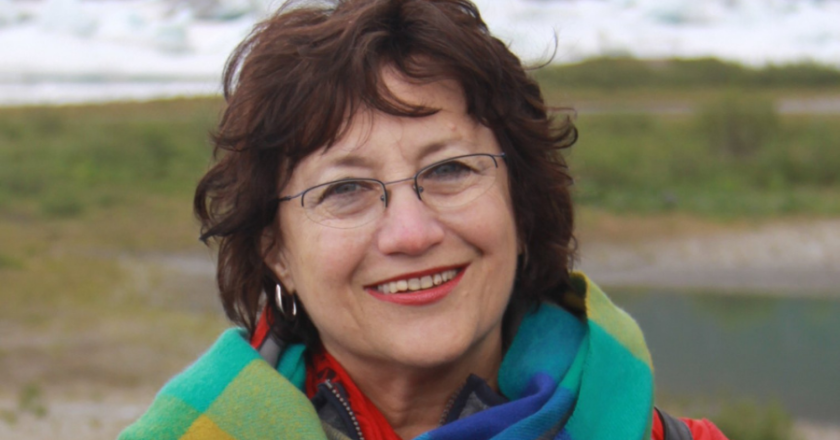
On 11 February 2021, on the occasion of the International Day of Women and Girls in Science, the International Union of Pure and Applied Chemistry (IUPAC) announced the 12 awardees of the IUPAC 2021 Distinguished Women in Chemistry or Chemical Engineering.
EuChemS is proud to see Dr Rachel Mamlok-Naaman, the Chair of the EuChemS Division of Chemical Education, as one of the awardees. On behalf of all of us at EuChemS, we congratulate Rachel Mamlok-Naaman on her award!
The IUPAC 2021 Distinguished Women in Chemistry or Chemical Engineering Awards is an annual programme established in 2011. It aims to acknowledge and promote the work of women chemists or chemical engineers worldwide. The awards will be given to the 12 winners during the IUPAC World Chemistry Congress to be held in August 2021.
You can read IUPAC’s announcement here.
Dr Rachel Mamlok-Naaman, from the Israel Chemical Society, is currently the Chair of the EuChemS Division of Chemical Education. She is employed in the chemistry group at the Department of Science Teaching, the Weizmann Institute of Science, Israel, where she served both as the head of the National Center for Chemistry Teachers (until present), and as the coordinator of the chemistry group at the Department of Science Teaching (until June 2016). Thus, her publications focus on the topics which are related to students’ learning and to teachers’ professional development. For her work on chemistry teachers’ professional development in Israel, she got the 2016 Maxine Singer Prize for outstanding scientists at the Weizmann Institute. She is the coordinator of chemistry teachers’ programs in the framework of the Rothschild-Weizmann MSc program for science teachers, and of projects in the framework of the European Union.

Initiative for Science in Europe (ISE) released a report on the precarity of academic careers in Europe. As ISE considers that precarity of academic careers is one of the most pressing issues of the research system, the ISE Researchers’ Careers Task Force focused its reflection on the causes for precarity in the academic sector:
This short report includes proposals addressed to the EU member states research ministries, research councils, funders, and EU science-policy decision makers. In order to enhance the conversation with relevant stakeholders, ISE is organising a series of webinars on the topic.
You can read the ISE paper on the precarity of academic careers here.
About ISE:
The Initiative for Science in Europe (ISE) is an independent platform which supports all fields of research at a European level, involves researchers in the design and implementation of European science policies, and advocates strong independent scientific advice in European policy making.
The European Chemical Society (EuChemS) is one of the 16 members of the ISE.

On 5 February, the European Innovation Council (EIC) announced that 35 projects from 10 European countries were selected in its last Innovation Launchpad call. In total, 118 proposals were submitted for this Innovation Launchpad call.
The selected projects include innovations in various sectors, such as railways, artificial intelligence, energy, and much more. The list of the awarded projects is available here.
The aim of EIC Innovation Launchpad call is to bring innovations closer to the market. Each project received a budget of €100.000 euros.
Read more about it here.
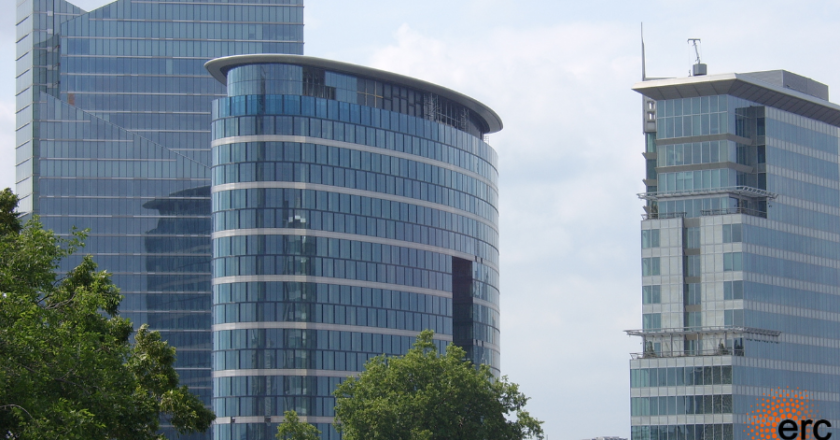
With the transition from ‘Horizon 2020’ to ‘Horizon Europe’, the new seven-year framework programme for Research and Innovation, the European Research Council (ERC) postponed the publication of the first ‘Horizon Europe’ calls, until the programme is adopted by the European Commission.
The ERC will inform the scientific community as soon as possible about the pending grant competitions. In the meantime, applicants are encouraged to prepare their proposals.
Read more about it here.

On 4 February 2021, the European Commission launched the new European Research Area (ERA) Forum for Transition. It is composed of EU Member States’ representatives, and it also includes one representative from each EEA/EFTA country.
The main goal of the ERA Forum for Transition is to provide recommendations to the Directorate-General Research and Innovation (DG-RTD) on the governance structure of the ERA, and on the development of the first ERA policy agenda.
In a press release, the European Committee of the Regions (CoR) demanded that EU cities and regions become more involved in the new ERA Forum for Transition, and in the ERA in general.
‘The Committee therefore advocates taking a cross-cutting approach closely linked to regional policies, involving a wide range of stakeholders – academia, industry, the public sector at various levels, the general public and civil society – and also highlights the need to fully recognise the role of smart specialisations and their collective and entrepreneurial process as one of the cornerstones of European research and innovation performance.’
Press release – The European Research Area: Towards full recognition of Regional Innovation Hubs,
European Committee of the Regions (CoR),
4 February 2021
Read more about the new ERA Forum for Transition here.
About ERA:
The European Research Area (ERA) is a system of scientific research programmes across Europe. It enables free circulation of researchers, science, and technology by integrating the scientific resources of the European Union. The original ERA plan was launched in 2000, and a process to revitalise it began in 2018.
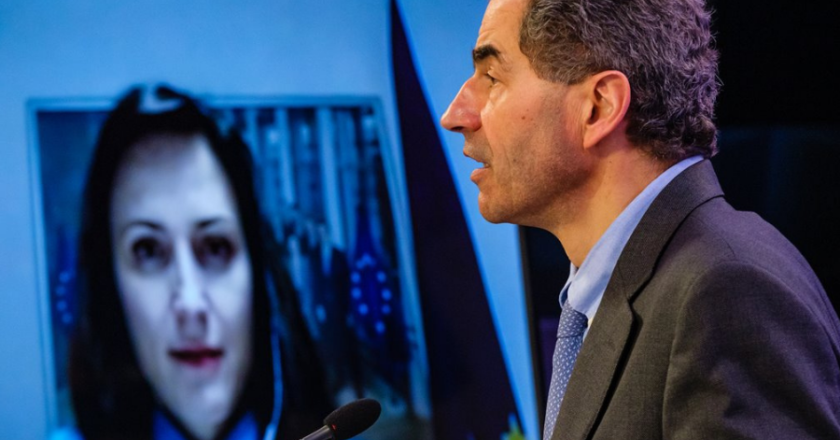
On 2 February 2021, the Portuguese Presidency of the Council of the European Union and the European Commission hosted the launch event of ‘Horizon Europe’, the European Union’s most ambitious Research and Innovation framework programme for the 2021-2027 period.
The opening remarks were given by Mariya Gabriel, Commissioner for Innovation, Research, Culture, Education and Youth, Cristian-Silviu Buşoi, Chair of the ITRE Committee, European Parliament, and Manuel Heitor, Minister for Science and Technology and Higher Education in Portugal.
During this online event, the European Commission reaffirmed the important role of ‘Horizon Europe’ for Research and Innovation: the next seven-year framework programme will focus on societal challenges, including public health, population aging, security and defence, as well as pollution and climate change. Furthermore, the programme will continue to strongly support frontier research in every EU region. As a reminder, the total and final budget for Horizon Europe is €95.5 billion, making it the most powerful research and innovation programme in the world (read our article Budget breakdown of Horizon Europe in the BNU December 2020 issue).
You can watch the launch of ‘Horizon Europe’ here.
Read the Portuguese Presidency of the EU Council’s announcement here.
Proud to present #HorizonEU, our most ambitious #research & #innovation programme, together with @2021PortugalEU today!
Let’s build a #green, #digital and #healthy future for everyone.
👉https://t.co/bRVHOOYU5Z pic.twitter.com/lU23J7e5jZ
— Mariya Gabriel (@GabrielMariya) February 2, 2021
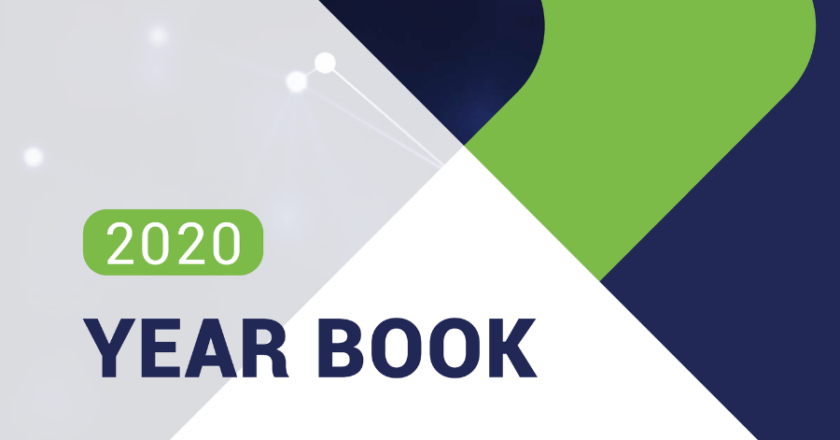
The 2020 Yearbook is a form of a EuChemS annual report which looks back at the activities and achievements carried out by the European Chemical Society and its community over the year. It also offers an insightful overview of EuChemS Professional Networks and their work. Divided between chapters, the Yearbook explores the 2020 initiatives and actions in policy areas, meetings, events and webinars, as well as awards and the activities related to the 50th anniversary celebration of the European Chemical Society.
We invite you to read and download the EuChemS Yearbook 2020 here.
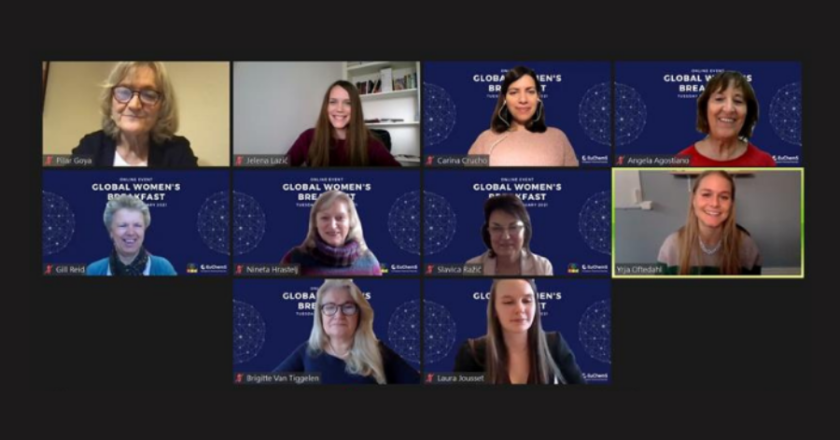
On the occasion of the Global Women’s Breakfast 2021 #GWB2021, an IUPAC initiative, the European Chemical Society (EuChemS) organised its first own event on Tuesday, 9 February 2021, from 10:00 to 11:00 CET.
Pilar Goya, EuChemS Vice-President, hosted and chaired a panel with an impressive line-up of speakers from the European Chemistry community who engaged with more than 150 attendees on various inclusion-related topics, including work-life balance, building professional networks and STEM education for school-age kids. The attendees were invited to ask questions and answer polls. Their feedback will be carefully considered by the EuChemS Task Group on Inclusion and Diversity, for follow up actions.
Also, the LinkedIn group “European Chemistry Network on Inclusion and Diversity” was launched to promote inclusion, equity, and diversity in the chemical sciences. This LinkedIn group aims at connecting chemists across Europe through a European-wide network and focuses on science opportunities, discussions, news, events and jobs within the chemistry sector. We hope this group will inspire people to post, discuss, and exchange experiences, which will hopefully get the ball rolling for further actions and projects in this respect.
“EuChemS, the European Chemical Society, representing over 150.000 chemists, will continue to promote inclusion and diversity in the chemical sciences and will strive to eradicate any form of discrimination.”
– Pilar Goya, EuChemS Vice-President,
Opening speech of the EuChemS @Global Women’s Breakfast
9 February 2021
We invite you to watch the recording of this online event here, where you can also subscribe to the EuChemS YouTube channel.
You must be logged in to post a comment.